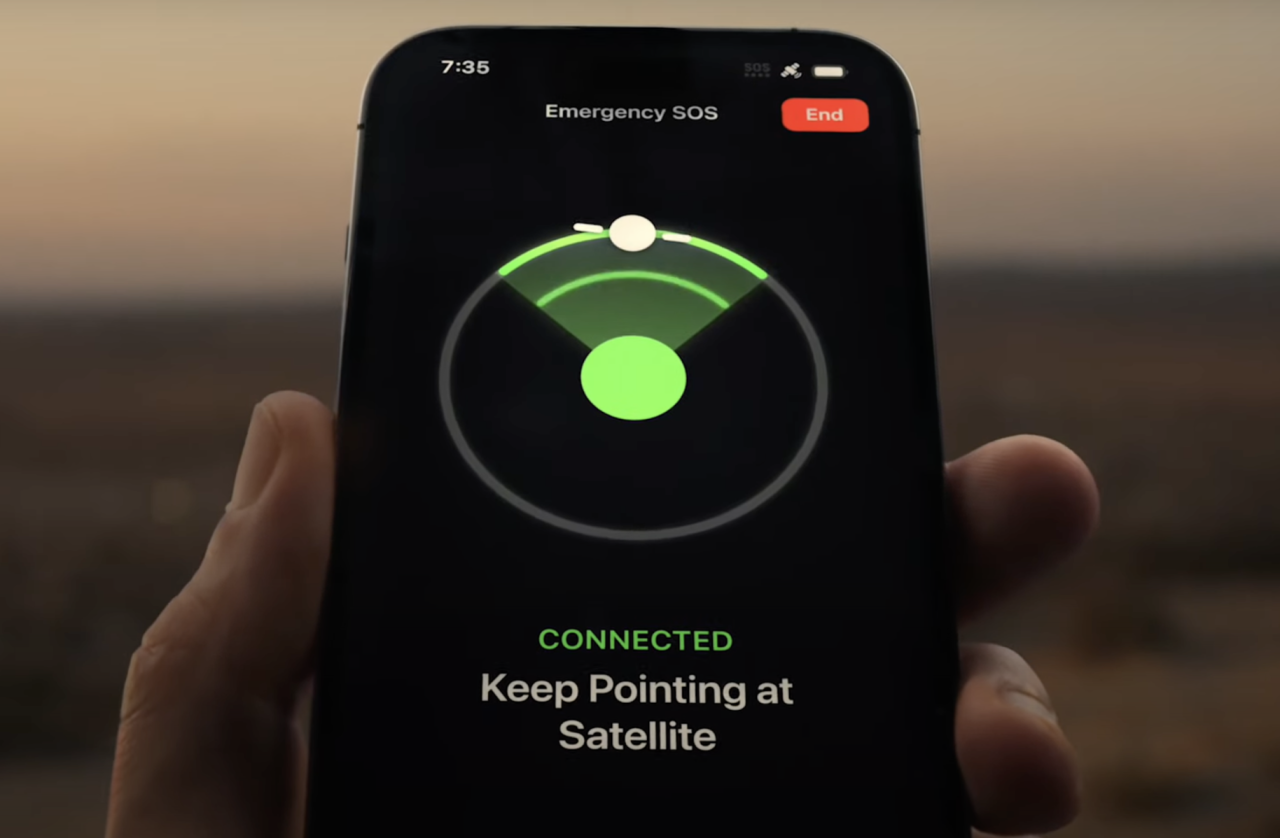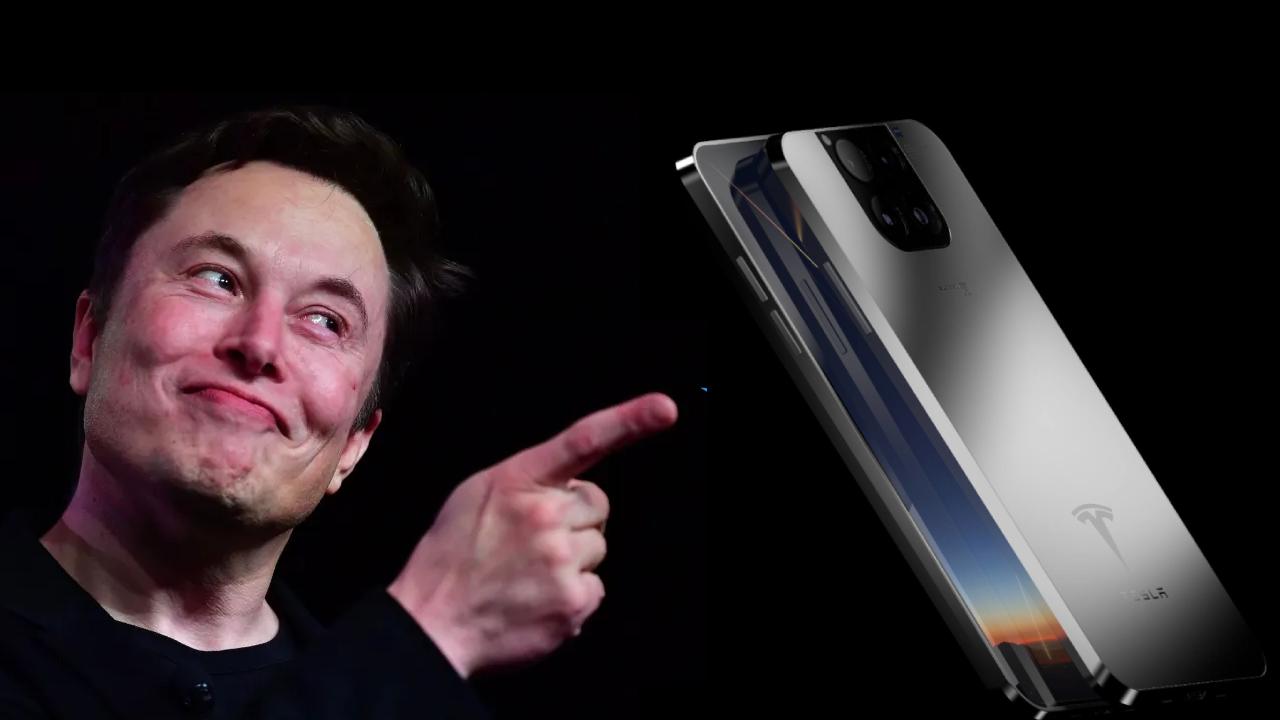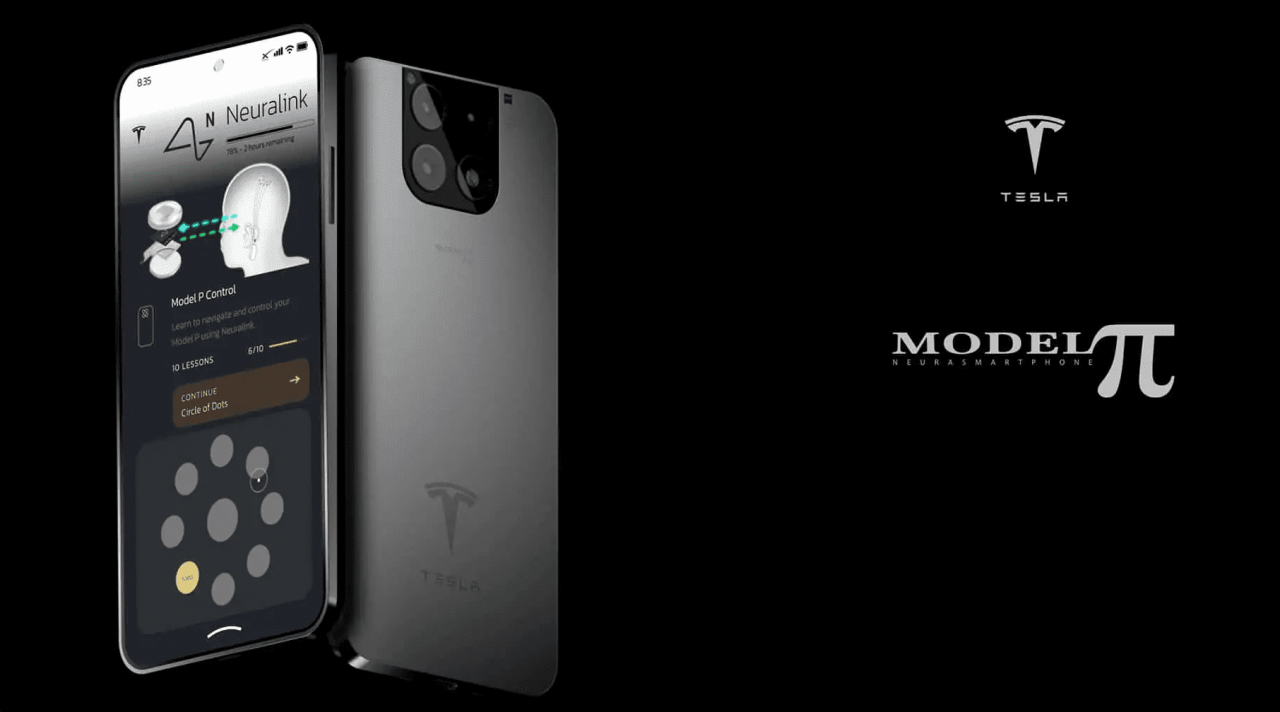Elon Musk phone, a phrase that sparks curiosity and speculation, encapsulates the innovative spirit of one of the most influential figures in technology. While Musk hasn’t explicitly designed a phone himself, his companies and visionary ideas have undeniably shaped the trajectory of the mobile phone industry. From the sleek aesthetics of Tesla vehicles to the ambitious goals of SpaceX, Musk’s influence extends beyond rockets and electric cars, reaching into the very device we hold in our hands every day.
This exploration delves into Musk’s past and present involvement with mobile technology, dissecting his vision for the future of mobile phones, and examining how his companies are influencing the evolution of this ubiquitous device. We’ll analyze the impact of his ideas on mobile phone design, functionality, and ultimately, the way we interact with the world around us.
Elon Musk’s Involvement with Mobile Phones
While Elon Musk is primarily known for his ventures in electric vehicles, space exploration, and artificial intelligence, his influence extends to the mobile phone industry as well. He has played a role in shaping the technology landscape, impacting both the development of mobile devices and the broader ecosystem.
Early Involvement and Influence
Elon Musk’s early involvement with mobile technology can be traced back to his co-founding of Zip2 in 1995. This company developed and delivered online city guide software, providing users with local information, maps, and directories, often accessed through personal computers and early mobile devices. This early experience exposed him to the potential of mobile technology and its role in shaping the future of communication and information access.
Impact on Mobile Payments
Elon Musk’s involvement with PayPal, which he co-founded in 1999, significantly impacted the mobile payments landscape. PayPal’s online payment platform revolutionized online commerce, making it easier and safer for users to transact online. This facilitated the growth of e-commerce and, subsequently, the adoption of mobile payments. The success of PayPal demonstrated the potential of digital wallets and mobile payment solutions, paving the way for future advancements in mobile finance.
Tesla’s Influence on Mobile Integration
Elon Musk’s Tesla, known for its electric vehicles, has also influenced the integration of mobile technology into automobiles. Tesla vehicles are equipped with large touchscreens that serve as the primary interface for various vehicle functions, including navigation, climate control, and entertainment. These touchscreens also facilitate mobile connectivity, enabling features like remote access, software updates, and integration with mobile apps. This approach has influenced other car manufacturers to incorporate similar mobile-centric features into their vehicles.
Starlink and Mobile Connectivity
Elon Musk’s SpaceX, through its Starlink satellite internet service, is poised to revolutionize mobile connectivity, especially in remote areas with limited access to traditional internet infrastructure. Starlink uses a constellation of low-Earth orbit satellites to provide high-speed internet access, enabling users to access the internet from virtually anywhere. This has the potential to bridge the digital divide and bring mobile connectivity to underserved communities worldwide.
Elon Musk’s Vision for Mobile Phones
Elon Musk, the visionary entrepreneur behind companies like Tesla and SpaceX, has also expressed his views on the future of mobile phones. While he is not directly involved in the mobile phone industry, his ideas reflect his broader perspective on technology and its impact on society.
Elon Musk’s Views on Mobile Phones
Elon Musk believes that mobile phones have become an indispensable part of modern life, but he also acknowledges the potential downsides. He has expressed concerns about the addictive nature of smartphones and their potential to distract us from real-life interactions.
Elon Musk’s Vision for the Future of Mobile Phones
Musk envisions a future where mobile phones are more integrated with other technologies, such as artificial intelligence (AI) and augmented reality (AR). He believes that these technologies can enhance our lives in numerous ways, making mobile phones more powerful and versatile tools.
Elon Musk’s Ideas on Mobile Phone Features
Elon Musk has championed the development of several features that he believes can improve the user experience. Some of his ideas include:
- Enhanced AI Capabilities: Musk believes that AI can play a significant role in making mobile phones more intelligent and helpful. He envisions AI-powered assistants that can anticipate our needs, provide personalized recommendations, and automate tasks.
- Augmented Reality Integration: Musk sees AR as a way to enhance our real-world experiences by overlaying digital information onto our surroundings. He believes that AR can be used for navigation, shopping, and entertainment, making mobile phones more immersive and interactive.
- Neural Interfaces: Musk is also a proponent of neural interfaces, which are devices that allow us to communicate directly with our brains. He believes that neural interfaces could eventually enable us to control our smartphones with our thoughts, eliminating the need for physical interaction.
Elon Musk’s Predictions for Mobile Phones
Elon Musk predicts that mobile phones will become increasingly sophisticated and interconnected in the future. He believes that they will play a central role in our lives, facilitating communication, entertainment, and information access. He also envisions a future where mobile phones are seamlessly integrated with other devices, creating a truly connected ecosystem.
Elon Musk’s Influence on Mobile Phone Design and Functionality
Elon Musk, known for his innovative ventures in space exploration, electric vehicles, and artificial intelligence, has also left an imprint on the mobile phone industry, though not directly through his own company. His ideas and philosophies have influenced the design and functionality of mobile phones, pushing boundaries and inspiring other manufacturers to adopt similar approaches.
Design Principles of Elon Musk’s Companies
Elon Musk’s companies, such as Tesla and SpaceX, are renowned for their minimalist and functional design principles. They prioritize simplicity, user-friendliness, and a focus on performance. This translates to mobile phone design in several ways:
- Minimalist Aesthetics: Elon Musk’s companies often favor clean lines, sleek surfaces, and a limited number of buttons. This approach emphasizes functionality over ornamentation, aiming for a streamlined user experience.
- Focus on Performance: Musk’s companies prioritize performance and efficiency, striving for the best possible results in their respective fields. This translates to mobile phone design by emphasizing high-performance processors, advanced cameras, and long battery life.
- User-Centric Design: Elon Musk’s companies prioritize user experience, making their products intuitive and easy to use. This principle is reflected in mobile phone design through user-friendly interfaces, intuitive navigation, and accessible features.
Comparison with Other Mobile Phone Manufacturers
While other mobile phone manufacturers may share some of these design principles, Elon Musk’s companies stand out for their unwavering commitment to simplicity and functionality. Some manufacturers, like Apple, are known for their sleek designs and user-friendly interfaces, while others, like Samsung, prioritize features and innovation.
- Apple: Apple is known for its minimalist aesthetic, emphasizing simplicity and user-friendliness. Their products are often characterized by sleek designs, intuitive interfaces, and a focus on user experience. However, Apple’s focus on closed ecosystems and premium pricing can be seen as a contrast to Musk’s emphasis on open-source solutions and affordability.
- Samsung: Samsung is known for its innovative features and cutting-edge technology. Their products often boast advanced cameras, powerful processors, and a wide range of features. However, Samsung’s design language can be perceived as more complex and less minimalist than Elon Musk’s companies, with a focus on a wider range of features.
Hypothetical Mobile Phone Inspired by Elon Musk’s Vision
Imagine a mobile phone that embodies Elon Musk’s vision for simplicity, functionality, and performance. This phone would feature:
- Minimalist Design: A sleek, rectangular design with a single button on the side for power and a minimal bezel around the display. The back would be made of durable, high-quality materials like titanium or carbon fiber, with a simple camera module integrated seamlessly into the design.
- High-Performance Hardware: Powered by a cutting-edge processor, the phone would deliver lightning-fast performance for demanding tasks like gaming and multitasking. It would also feature a long-lasting battery, allowing for extended use without needing to recharge.
- Intuitive User Interface: The phone would run on a streamlined, user-friendly operating system designed for simplicity and ease of use. The interface would prioritize essential functions, with minimal clutter and a clear focus on the user’s needs.
- Open-Source Platform: The phone would run on an open-source platform, allowing developers to create and share custom apps and features. This would encourage innovation and empower users to personalize their experience.
- Advanced Camera System: The phone would feature a high-resolution camera system with advanced image processing capabilities, enabling users to capture stunning photos and videos.
- Enhanced Security: The phone would prioritize security with advanced biometric authentication and end-to-end encryption, protecting user data from unauthorized access.
This hypothetical mobile phone would be a testament to Elon Musk’s vision for simplicity, functionality, and performance, pushing the boundaries of what a mobile phone can be.
Mobile Phone: A Broader Perspective
The mobile phone, a seemingly ubiquitous device in today’s world, has undergone a remarkable journey from its humble beginnings to its current status as an indispensable tool for communication, information access, and entertainment. Its evolution reflects the rapid pace of technological advancement and its profound impact on society.
The Evolution of Mobile Phones, Elon musk phone
The history of mobile phones traces back to the early 20th century, with the development of the first wireless communication devices. The first commercially available cellular phone, the DynaTAC 8000X, was introduced in 1983 by Motorola. This bulky device, weighing over two pounds, represented a significant milestone in mobile communication, allowing users to make calls from anywhere with cellular network coverage.
- The Rise of Digital Technology: The 1990s witnessed the transition from analog to digital cellular networks, leading to improved call quality, increased capacity, and the introduction of new features like text messaging.
- The Smartphone Revolution: The dawn of the 21st century marked a paradigm shift with the advent of smartphones. Devices like the IBM Simon Personal Communicator (1994) and the Nokia Communicator 9000 (1996) paved the way for smartphones, combining mobile phone functionality with computing capabilities.
- The Age of Touchscreens and Apps: The introduction of touchscreen technology, exemplified by the Apple iPhone (2007), revolutionized user interfaces and ushered in the era of app-based mobile experiences.
- Connectivity and Beyond: The evolution of mobile phones continues with advancements in connectivity, including 4G and 5G networks, and the integration of various technologies like GPS, Bluetooth, and NFC, expanding their functionality beyond communication.
Significant Innovations in Mobile Phone Technology
The evolution of mobile phones has been driven by numerous innovations, each contributing to the enhanced functionality and user experience of these devices.
- The Development of Cellular Networks: The creation of cellular networks, allowing for wireless communication over a wide geographical area, was a foundational innovation that enabled mobile phones to become a reality.
- The Introduction of Text Messaging: Text messaging, initially introduced in the early 1990s, provided a new and convenient form of communication, allowing users to exchange messages quickly and efficiently.
- The Integration of the Internet: The integration of the internet into mobile phones opened up a world of possibilities, enabling users to access information, browse the web, and download applications.
- The Development of Touchscreen Technology: Touchscreen technology transformed user interfaces, making mobile phones more intuitive and user-friendly, paving the way for the smartphone revolution.
- The Advancements in Camera Technology: The integration of high-resolution cameras in mobile phones has transformed the way we capture and share moments, making photography and videography accessible to everyone.
The Impact of Mobile Phones on Society, Culture, and Communication
Mobile phones have had a profound impact on society, culture, and communication, transforming the way we interact, access information, and conduct our daily lives.
- Enhanced Communication: Mobile phones have revolutionized communication, making it easier and more accessible than ever before. People can stay connected with friends and family regardless of location, facilitating instant communication and fostering stronger relationships.
- Information Access: Mobile phones have become our primary source of information, providing access to a vast array of knowledge and resources. We can access news, weather updates, and online services with just a few taps on our screens.
- Social Media and Digital Culture: Mobile phones have played a pivotal role in the rise of social media, enabling people to connect, share experiences, and build online communities. This has transformed the way we interact with each other and consume information.
- E-commerce and Mobile Payments: Mobile phones have become indispensable tools for online shopping and mobile payments, allowing us to purchase goods and services conveniently and securely.
- Global Connectivity: Mobile phones have bridged geographical barriers, connecting people from all corners of the world and facilitating global communication and collaboration.
End of Discussion: Elon Musk Phone
Elon Musk’s influence on the mobile phone industry is undeniable. His relentless pursuit of innovation, coupled with his companies’ cutting-edge technologies, has pushed the boundaries of what’s possible. Whether it’s integrating Neuralink’s brain-computer interface with smartphones or harnessing SpaceX’s satellite network for seamless global connectivity, the future of mobile phones is brimming with possibilities fueled by Musk’s vision. As we navigate this rapidly evolving landscape, it’s clear that Elon Musk’s fingerprints are etched on the very device that connects us to the world.
While there’s no official “Elon Musk phone” yet, rumors swirl about a potential Tesla-branded phone. Some speculate it could be a direct competitor to the iPhone, leveraging Tesla’s expertise in technology and design. The idea of a Tesla phone has certainly captured the imagination of tech enthusiasts, but it remains to be seen if Elon Musk will actually bring it to market.
Elon Musk’s phone might be a high-tech marvel, but for those looking for a more budget-friendly option, the walmart family mobile plans offer a great deal. While Musk’s phone might have all the bells and whistles, a simple and affordable plan can still provide reliable communication and data for the whole family.




